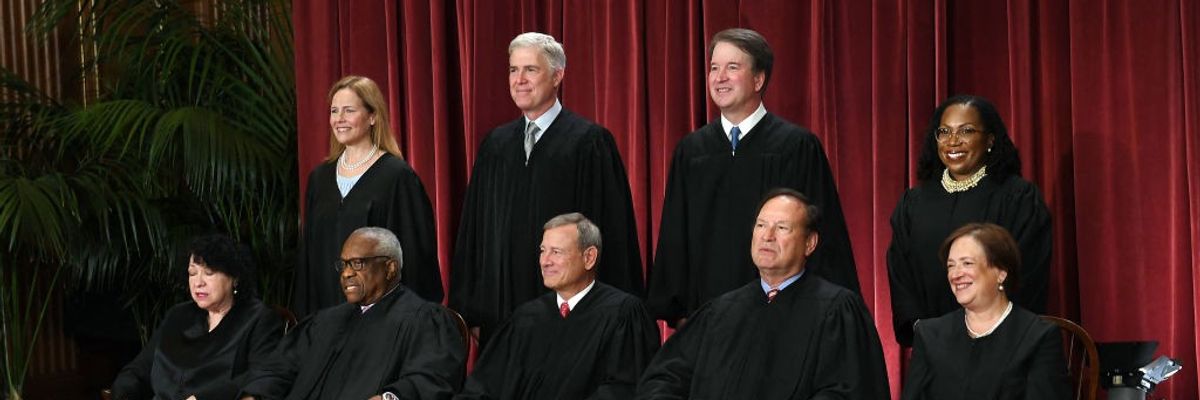Researchers predict the racial wealth gap will take
hundreds of years to close—and that is if the right policies are enacted. The U.S. Supreme Court case Moore v. United States, already a cause for concern for people who care about fair taxes, could create more barriers for racial equity advocates working to improve the economic conditions for people of color.
The case tests whether the plaintiffs, Charles and Kathleen Moore, must pay taxes on their profits as partial owners of a multinational corporation, as required by the 2017 Tax Cuts and Jobs Act. The Moores claim their tax bill is unconstitutional because the federal government can only tax income when it is “realized,” which usually means when an asset is sold and the owner receives compensation. A finding for the plaintiffs
could lead the courts to strike down many tax laws that have been in place for decades. Their argument was rejected by other courts, but the Supreme Court has agreed to hear the case.
Around the nation, moneyed interests are sitting on the edge of their seats waiting for the outcome of the case because if the court finds for the Moores, their reasoning could both invalidate existing law and block new proposals to tax wealth or income from wealth, further entrenching existing inequities. Today,
the average net worth of white households is 4.1 and 5 times that of Black and Hispanic households, respectively. A broad ruling in Moore could stifle policies for reducing this racial wealth gap.
Given that white households own a disproportionate share of wealth, they also disproportionately benefit from tax breaks for income from wealth, which in turn worsens the wealth divide.
Each week seems to bring another revelation of how the ultrawealthy associates of Supreme Court Justices Clarence Thomas and Samuel Alito have
provided lavish gifts to the justices while urging the court to take on cases that could reduce their tax liability. Chief Justice John Roberts and Justice Alito together have personal stock in 19 companies that could receive over $30 billion in tax breaks from this case, according to a recent ITEP-Roosevelt Institute report. Without ethics rules, this unrestricted (and strategic) access to the court and potential conflicts of interest continue to threaten the credibility of the court.
A ruling that Congress can generally tax income only when it is “realized” would make it particularly difficult to tax income from wealth. Under current law, income from wealth is generally taxed much less than income from work. The most obvious way is the lower tax rates that apply to most capital gains and dividends. But even more important is the ability of wealthy people to defer paying income tax on capital gains until these gains are “realized,” which usually means they have sold an asset for a profit. Often when ultrawealthy people die their assets are passed onto their heirs, at which point the increase in value disappears from the tax system entirely without anyone ever paying any taxes on the gain.
Given that white households own a disproportionate share of wealth, they also disproportionately benefit from tax breaks for income from wealth, which in turn worsens the wealth divide.
Policies to tax unrealized gains, like those
the Biden administration and some states have proposed, can help reverse the unfair treatment of income from wealth. And stronger taxes on realized gains at the federal or state level are a fitting policy option for lawmakers to address the racial wealth gap. The capital gains tax in Washington state survived a legal challenge and was ratified by the state’s Supreme Court, but brewing in the background is a broader disagreement over the constitutionality of state wealth taxes. The Moore case has the potential to add to the discord.
This year the Supreme Court has weighed in on many facets of government that deeply affect people of color, from recently making Alabama
redraw its congressional map to striking down the Biden administration’s student loan forgiveness plan.
With the
Moore case, the Supreme Court could—powered by reams of dark money—add to that by eliminating solutions that would shrink the racial wealth gap. We know the tax code is not race neutral. And we know the potential outcomes of this case are not either.

